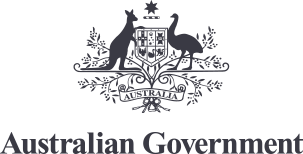STEM camp in Tassie inspires young Indigenous women
When Hannah McCleary participated in CSIRO's Aboriginal Summer School for Excellence in Technology and Science, her love of science was sparked.
A proud palawa woman from nipaluna/Hobart, Hannah went on to complete a cadetship with CSIRO, which led to her role as the Academic Coordinator for the Young Indigenous Women's STEM Academy (The Academy).
The Academy is a national program for Aboriginal and/or Torres Strait Islander young women from Year 8, through higher education and to graduate employment. The Academy provides individualised support to students through a dedicated Academic Coordinator, online National Assemblies, work placements and Regional STEM Camps as well as other educational support services.
This role allows Hannah to inspire other young Aboriginal and/or Torres Strait Islander women to take up a career in Science, Technology, Engineering, or Mathematics (STEM).
Hannah currently supports and mentors a group of Year 10 Aboriginal and/or Torres Strait Islander young women from Tasmania and Victoria who are interested in pursuing a career in STEM. As part of the Academy, they attend Regional STEM Camps, with one being held in nipaluna/Hobart, Tasmania this week.
Hannah said the camp is more than just an opportunity to learn about STEM.
'The STEM Camp is an opportunity for the young women to immerse themselves in STEM and connect with culture,' Hannah said.
Over the 3-day STEM Camp, students will participate in cultural activities on Country, engage in hands-on lab sessions, fly drones and explore CSIRO’s world-class algae and fish collections. They will also explore higher education pathways and get an insight into what university life may look like.
Young Indigenous woman, and Academy participant, Meg Kotynia-Soley is also attending the camp.
‘This camp will give me the opportunity to explore medicine and also show what opportunities are available in that field,’ Meg said.
Meg also shared how much she values having a mentor to give her guidance and manage opportunities that arise in her schooling and during her time in the Academy.
Academy participant Molly Hughes, with family connections to Saibai Island in the Torres Strait, said having Hannah available for support or assistance for her Victorian Certificate of Education (VCE) studies this year will be a huge help.
‘Having a mentor is really nice because it is a good feeling knowing I have someone to talk to about things I am achieving in school,’ said Molly.
Even though Molly loves maths and science, she said attending last year’s Regional STEM Camp provided her the opportunity to explore other STEM fields, such as engineering, and encourages students to get involved in opportunities such as the Academy to experience other STEM subjects they might not know much about.
‘I’d say just go for it, there’s nothing to lose. You don’t need to be the smartest or have the best grades. Just having this opportunity opens a lot of doors,’ Molly said.
The Academy’s Regional STEM Camps allow students to have both STEM and cultural experiences, while getting to know each other and Aboriginal and/or Torres Strait Islander STEM professionals and mentors.
In addition to the program’s academic benefits, Hannah sees the immense cultural benefit and would like to continue to inspire other young Indigenous women.
In the future, Hannah would like for the wider public to realise the benefit of programs such as the Academy.
